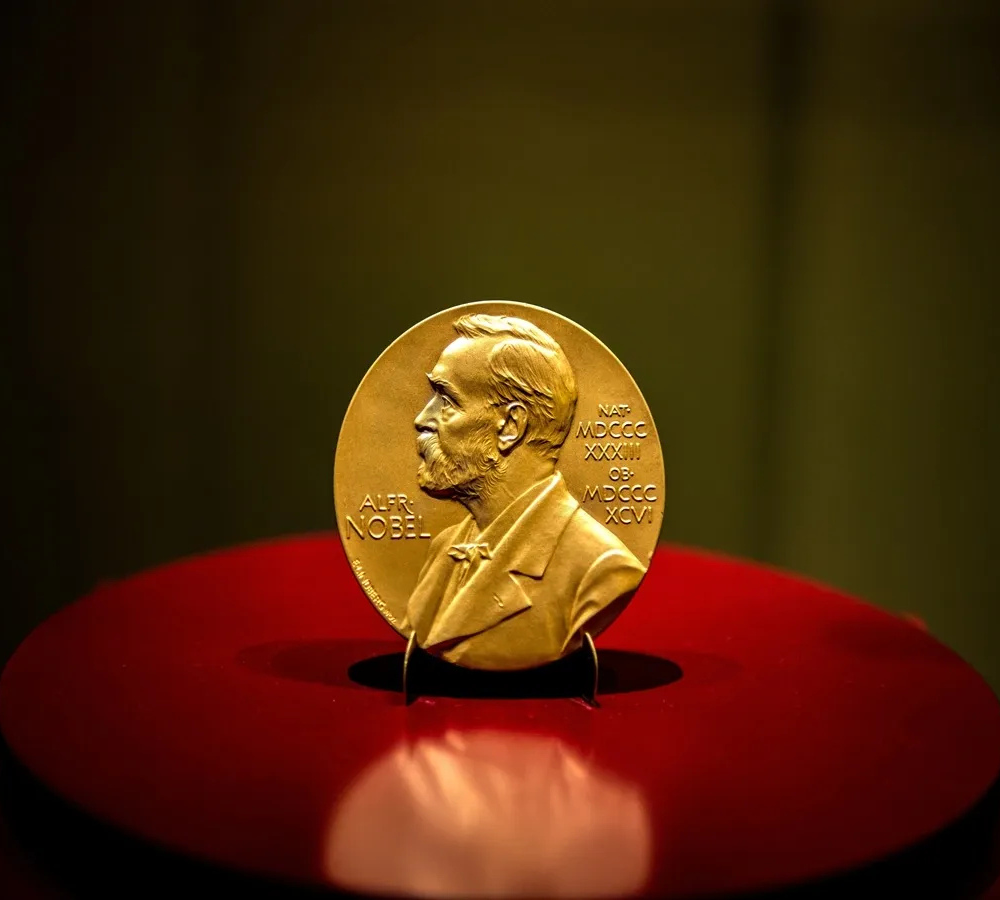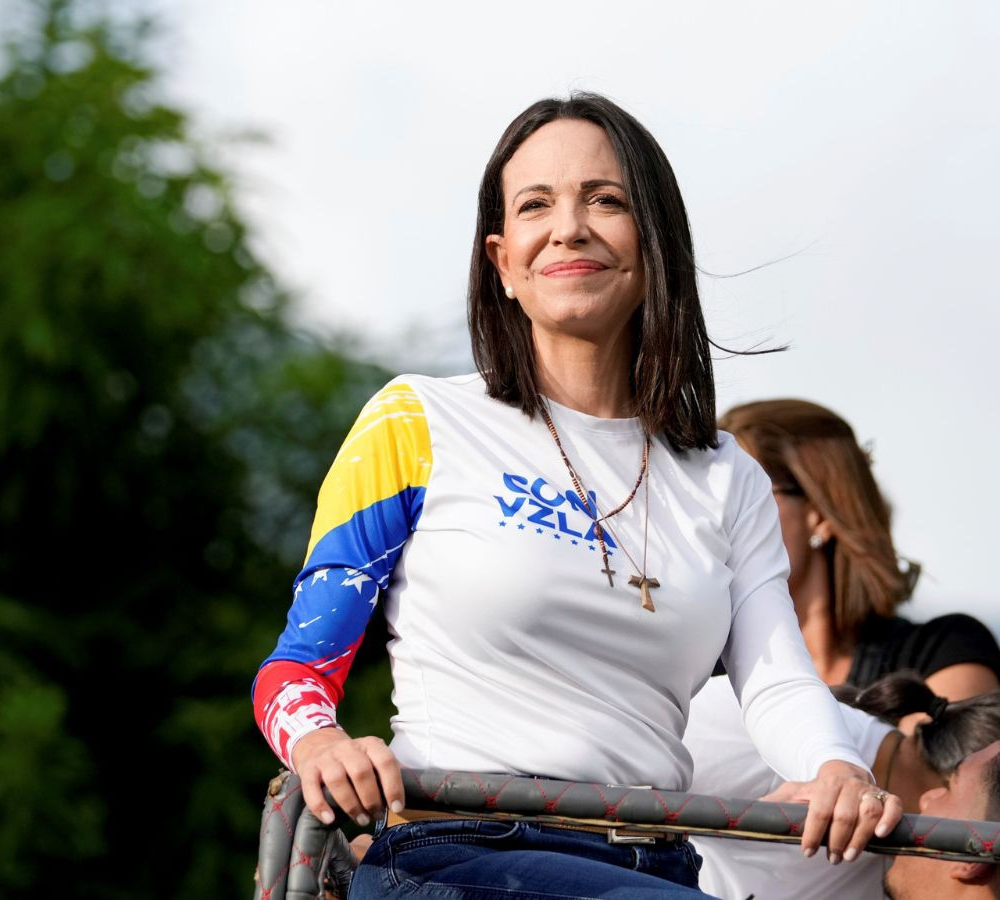
Introduction: The announcement of the 2025 Nobel Peace Prize in Oslo on October 10 at 11:00 AM carried profound significance for me. As a former Global Fellow at the Peace Research Institute Oslo (PRIO)—a leading institution renowned for its expertise in shortlisting Nobel Peace Prize candidates I was in Oslo, eagerly awaiting the outcome. The moment was charged with anticipation, connecting my personal journey with PRIO’s prestigious role in shaping global peace discourse.The announcement of María Corina Machado, Venezuela’s prominent opposition leader surprised many, including Machado herself, came via a late-night call from Kristian Berg Harpviken, Director of the Norwegian Nobel Institute and former head of the Peace Research Institute Oslo (PRIO), where I served as a Global Fellow for many years. The Nobel Committee honored Machado “for her tireless work promoting democratic rights for the people of Venezuela and her struggle for a just and peaceful transition from dictatorship to democracy.” Yet, her controversial record has ignited a firestorm over the prize’s alignment with peacebuilding principles.
Nobel Peace Prize: Lineage: Established by Alfred Nobel’s 1895 will, the Peace Prize allocates part of his fortune to those advancing “fraternity between nations, the abolition or reduction of standing armies, and the promotion of peace congresses.” Uniquely awarded by a five-member committee elected by Norway’s Parliament, unlike the Swedish-administered Nobel Prizes, it reflects Nobel’s vision of global unity, possibly shaped by his friend Bertha von Suttner, a 1905 laureate and pacifist. A widely circulated but debated story claims that in 1888, after his brother Ludvig’s death, newspapers mistakenly published Alfred’s obituary, branding him “le marchand de la mort” (“the merchant of death”) for inventing dynamite. This harsh judgment allegedly inspired Nobel to create the prizes to redeem his legacy, though historians question the obituary’s existence. Notably, Vietnamese revolutionary Le Duc Tho declined the 1973 Peace Prize, shared with Henry Kissinger, citing unresolved conflict in Vietnam, distinguishing him as the most prominent Peace Prize refuser.

Nominations and Context: Selected from a record 338 nominations—244 individuals and 94 organizations—the 2025 prize reflects the Norwegian Nobel Committee’s rigorous process. For context, the 2024 laureate was Nihon Hidankyo, a Japanese grassroots group of atomic bomb survivors advocating nuclear disarmament. This year’s contenders included Sudan’s Emergency Response Rooms (ERRs), providing lifesaving aid amid 2023’s violence; the Committee to Protect Journalists (CPJ), addressing the deaths of 124 journalists in 2024 (70% in Gaza); and PRIO-nominated groups like the Women’s International League for Peace and Freedom (WILPF), the International Court of Justice (ICJ), and the International Criminal Court (ICC). The ICC’s nomination is particularly notable, signaling accountability for war crimes, especially as Israeli Prime Minister Benjamin Netanyahu faces an ICC arrest warrant for alleged actions in Gaza.
Controversies: The decision to award Machado sparked immediate backlash. The White House accused the Nobel Committee of prioritizing “politics over peace” after U.S. President Donald Trump, who campaigned vigorously for the prize, was overlooked. Trump’s administration has spearheaded a promising Gaza ceasefire and hostage deal, involving a complex 20-point plan, though its full implementation faces regional challenges and may take years. While too late for 2025, it positions Trump as a strong contender for 2026 if peace holds.Paradoxically, Machado’s win may align with U.S. interests. Nominated by Republican U.S. Senators, including Secretary of State Marco Rubio in August 2024, Machado dedicated her award to Trump, praising his “decisive support.” Her leadership in Venezuela’s opposition reflects a fierce commitment to democratic renewal, but her record is polarizing. Involved in the 2002 coup attempt against Hugo Chávez, she has since mobilized protests (some violent), economic disruptions, and called for foreign intervention, including urging Netanyahu to bomb Venezuela for “liberation.” Her vocal support for Israel’s actions in Gaza further complicates her peace credentials. Venezuelan state media dismissed the award as a “ploy by the international right,” while Machado hailed it as validation of her people’s struggle.Supporters view Machado as a courageous defender of democracy against Nicolás Maduro’s repressive regime, arguing the prize highlights civic resistance. Critics, however, contend her tactics—coup involvement, protest violence, and calls for military intervention—clash with nonviolent peacebuilding principles, blurring the line between resistance and aggression. The award’s alignment with U.S. foreign policy, critical of Maduro, underscores its political undertones, yet the Nobel Committee’s independence remains evident in navigating these complexities.
Finally: The 2025 Nobel Peace Prize to María Corina Machado embodies a profound tension: celebrating resistance to authoritarianism while raising questions about the nature of peace. By honouring Machado, the Committee amplifies the struggle for democratic freedom in Venezuela but risks endorsing a polarizing figure whose actions sometimes veer toward belligerence. This choice reignites debate over whether the Nobel Peace Prize, meant to honour moral courage and reconciliation, has become entangled in global politics. As with past laureates, it challenges us to weigh the messy realities of “peace” in a world where ideology and power shape moral recognition.
